In the vast expanse of human knowledge, few pursuits hold greater significance than delving into the annals of history. The Paramount Importance of Studying History lies in its profound ability to illuminate our present and shape our future. History serves as a mirror, reflecting the triumphs and missteps of civilizations past, offering invaluable lessons for our contemporary world. As we navigate the complexities of the 21st century, understanding the historical forces that have shaped our societies, cultures, and institutions becomes paramount.
Key Takeaways:
- Comprehending the World: Explore the evolution of civilizations, governance, and technology.
- Personal Development: Gain empathy, perspective, and lessons from others’ experiences.
- Cultural Appreciation: Understand and value diverse cultures and their contributions.
- Finding Inspiration: Discover examples of endurance, innovation, and human achievement.
- Learning from the Past: Identify mistakes and avoid their recurrence.
- Enhancing Cognitive Skills: Develop critical thinking, analysis, and problem-solving abilities.
- Understanding the Present: Provide context for current events and aid in informed decision-making.
- Expanding Global Awareness: Increase knowledge of world events and social issues.
Importance of Studying History
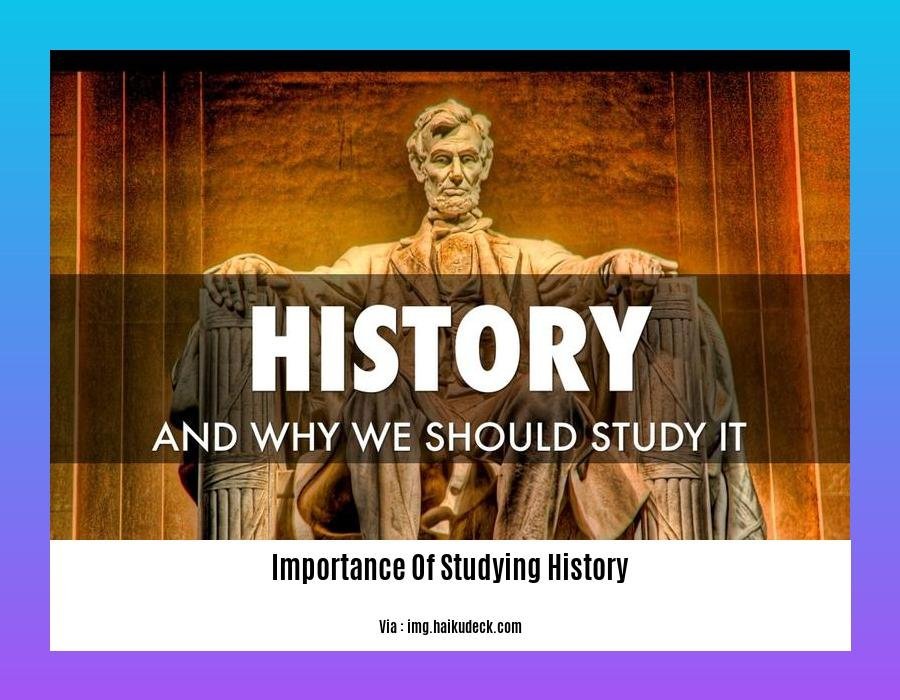
History shapes our present.
History is not just about the past; it’s about understanding the present. By examining past societies, cultures, and events, we gain insights into the forces and patterns that have shaped our world.
History gives us perspective.
Studying history helps us realize that the challenges we face today are not unique. Throughout history, humans have confronted wars, economic crises, and social upheavals. History provides perspective, showing us that we are not the first to face these challenges and that others have overcome them.
History develops critical thinking skills.
When we study history, we learn to analyze sources, weigh evidence, and form our own conclusions. History develops our critical thinking skills, making us better decision-makers and problem-solvers.
History enhances empathy.
By immersing ourselves in the lives of people from different times and cultures, history helps us develop empathy. We learn to understand the motivations, beliefs, and experiences of others, fostering a greater sense of global citizenship.
History inspires.
History is filled with stories of courage, resilience, and innovation. These stories can inspire us to overcome our own challenges and achieve our goals.
History informs the future.
By learning from the past, we can avoid repeating mistakes and make better decisions about the future. History provides us with a roadmap to a better future, guiding us towards progress and prosperity.
In this era, where the digital age has taken over, it’s easy to forget the significance of our past. If you are interested in uncovering the importance of history, click on the significance of history link.
Moreover, if you wish to understand the basic concept of history, click on the definition of history link. But if you want to embark on a journey to understand the intricacies of history, click on the what is history link.
Promotes tolerance of other cultures
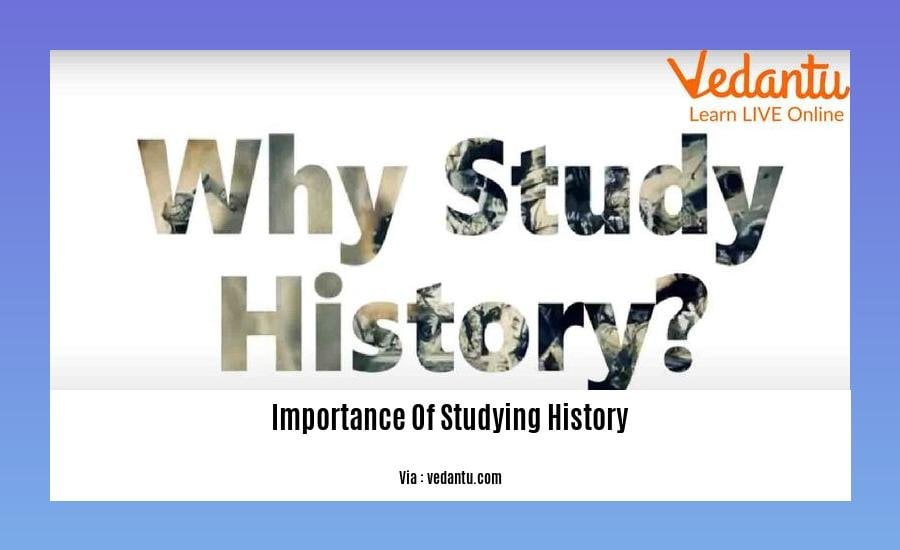
History is an incredible tool for promoting tolerance of other cultures. History shapes our perspective on cultural diversity, allowing us to understand the motivations and beliefs of those different from us. By reflecting on past conflicts and misunderstandings due to cultural differences, we can learn to appreciate and respect diverse perspectives, fostering mutual understanding and empathy.
History reminds us that the world is a tapestry of vibrant cultures, each with its values and traditions. It encourages us to embrace the richness of human diversity rather than fear or reject it.
Key Takeaways:
- History helps us to understand the origins of cultural diversity.
- Historical events showcase the consequences of intolerance.
- Studying history fosters empathy and understanding of different cultures.
- History unveils the common threads that unite humanity.
- Education and exposure to diverse perspectives promote tolerance.
Citation:
Provides lessons from the past
Unveiling the past is like deciphering a secret code that holds the key to understanding our present and shaping our future. History isn’t merely a collection of dates and events; it’s a treasure trove of wisdom, a tapestry woven with the threads of human experiences, successes, and failures. By delving into the annals of time, we embark on a journey of learning from those who have come before us, gaining invaluable lessons that guide our path forward.
- Unveiling Past Mistakes: Studying history allows us to avoid the pitfalls of the past. By examining the consequences of past decisions, we gain insights into the actions that led to both triumphs and disasters. This knowledge empowers us to make wiser choices, preventing us from repeating the errors of our predecessors.
- Capitalizing on Past Triumphs: History also serves as a beacon of inspiration, showcasing the ingenious solutions and strategies that have propelled humanity forward. By learning from the successes of those who came before us, we can draw upon their wisdom and apply it to our present-day challenges.
- Fostering Critical Thinking: History challenges us to think critically and analyze diverse perspectives. By examining multiple viewpoints and assessing the evidence, we develop our ability to discern fact from fiction and form well-informed opinions. This critical thinking skill is essential for making sound judgments in both our personal and professional lives.
Key Takeaways:
- History provides a lens through which we can understand the complexities of human nature.
- Studying the past empowers us with lessons that shape our present and guide our future.
- History cultivates critical thinking skills, enabling us to make informed decisions and navigate the complexities of modern society.
Relevant URL Source:
- History: The Key to Our Future
Strengthens problem solving skills
History serves as a treasure trove of past human endeavors, both glorious triumphs and cautionary missteps. By delving into these annals, we uncover invaluable lessons that equip us to navigate the complexities of modern-day dilemmas. History fosters problem solving skills by honing our ability to:
Identify Patterns: History unveils recurring themes and patterns in human behavior, societal dynamics, and political machinations. Recognizing these patterns enables us to anticipate potential challenges and devise effective strategies.
Analyze Cause and Effect: Historical narratives showcase the intricate web of cause and effect relationships that shape events. Understanding these relationships empowers us to identify root causes and develop targeted solutions.
Evaluate Evidence: History demands a critical examination of diverse sources and perspectives. This rigorous process sharpens our ability to weigh evidence, assess credibility, and draw informed conclusions.
Learn from Mistakes: History serves as a cautionary tale, highlighting the consequences of both prudent and ill-conceived decisions. By studying past blunders, we gain invaluable insights into the pitfalls to avoid and the strategies that yield success.
Foster Creativity: History exposes us to a myriad of innovative solutions and unconventional approaches that have shaped the course of events. This exposure sparks our imagination and encourages us to think outside the box when confronted with challenges.
Key Takeaways:
- History provides a rich tapestry of problem solving skills development.
- By studying history, we cultivate our ability to identify patterns, analyze cause and effect, evaluate evidence, learn from mistakes, and foster creativity.
- The lessons gleaned from history empower us to tackle contemporary challenges and shape a more informed future.
Relevant URL Source:
Why History Matters: Understanding Our Past to Shape Our Future
FAQ
Q1: What are the primary benefits of studying history?
Q2: How does studying history contribute to personal growth?
Q3: In what ways does history provide inspiration for the present?
Q4: How can we avoid making the same mistakes by studying history?
Q5: What are the key skills that studying history develops?
- Senior at What Age: Benefits & Eligibility Guide - March 29, 2025
- Unlocking Senior Benefits: How Old is a Senior? Your Complete Guide - March 29, 2025
- Master Russian Politeness:A Guide to Saying Please - March 29, 2025
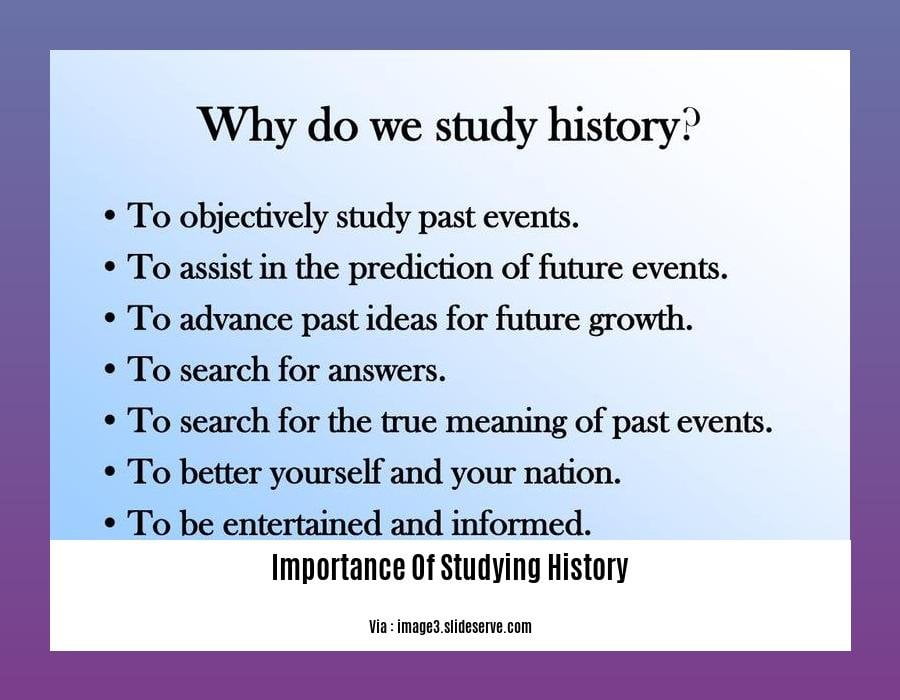
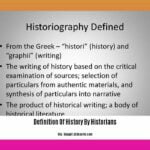
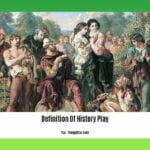
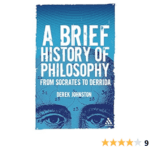
![[Phrase Match] Embracing Evolution: A Journey Through Contemporary Dance History contemporary-dance-history_2](https://www.lolaapp.com/wp-content/uploads/2023/12/contemporary-dance-history_2-150x150.jpg)











